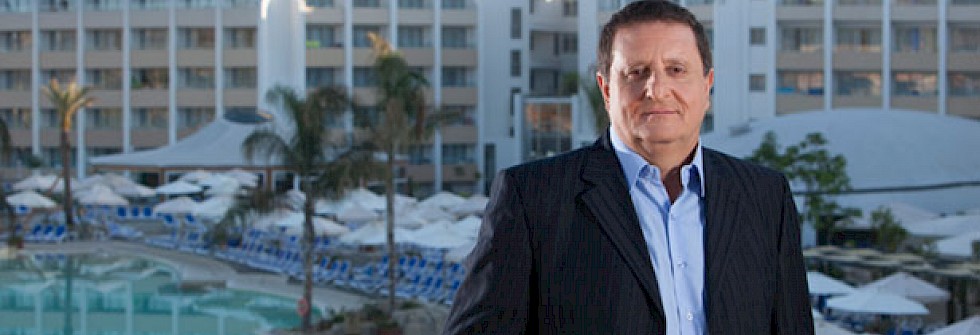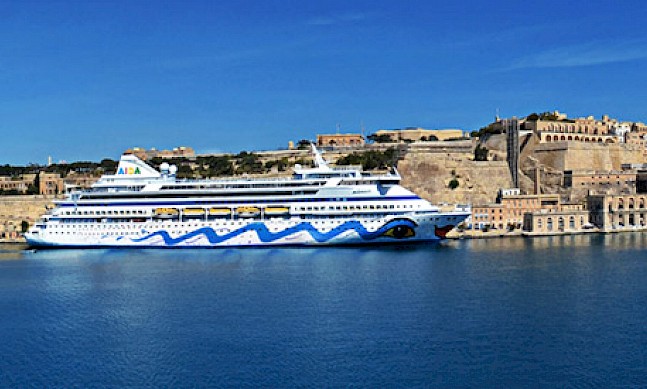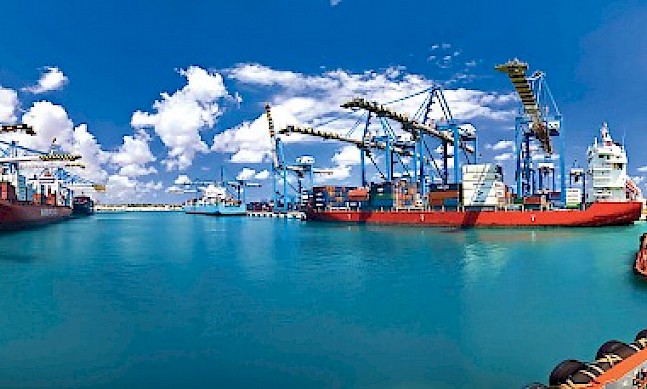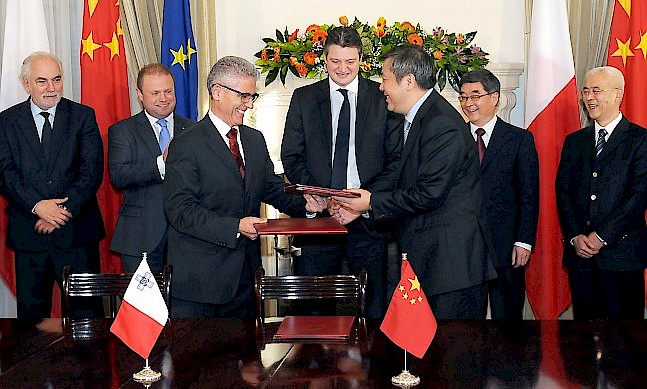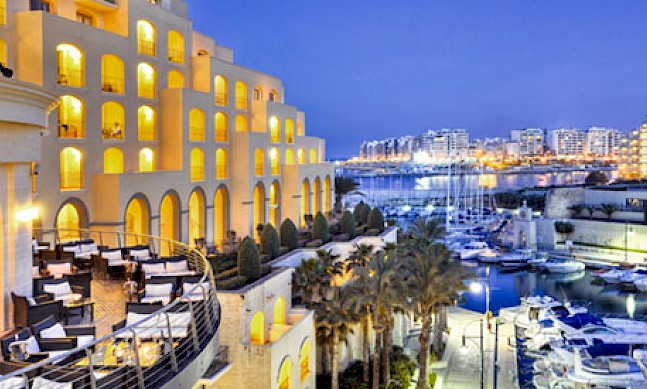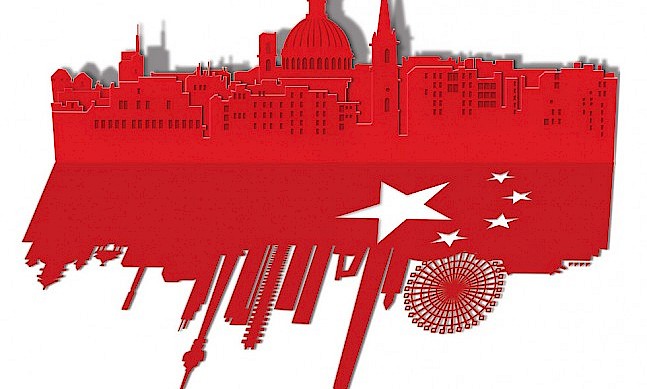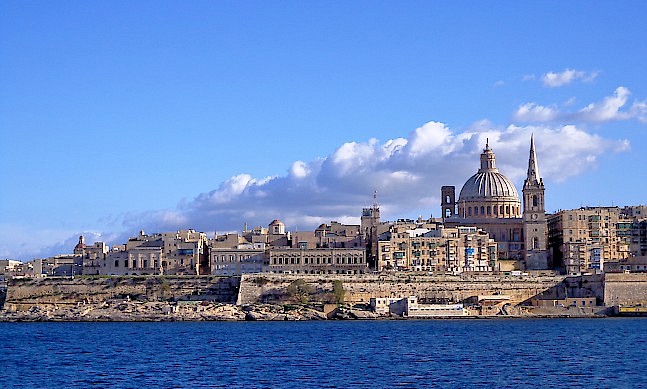From humble beginnings as a waiter, entrepreneur Silvio Debono built up the Seabank Group, which now boasts three four-star hotels – two of which being Malta’s biggest – a partnership with Hard Rock Café, Malta’s largest contract catering operation, as well as various real estate interests. He met with The Report Company to share the steps to his success.
The Report Company: What has been your strategy in transforming your small business into one of the leaders in Malta’s hospitality and tourism sector?
Silvio Debono: I started as a waiter. I learnt a lot from the owner of the restaurant where I worked about how important it is to provide the best service to clients. Since then I have learnt the strategy that the client is always the number one in this business. After working as a bar man for a while, there was an opportunity to take on a small tearoom and that’s when I started my own business.
I turned this small bar in a small restaurant and it was very successful. In the meantime, the owner of this small guesthouse would always tell me he wanted to sell his guesthouse to me. I didn’t have the money, but because he used to see me working seven days a week and 16-hour days, we made an agreement for me to become a partner without paying a single penny, based on profits. We started with a restaurant, then I opened a bar, then a discotheque, then a pizzeria and it was a success.
When I opened the first 80 rooms it wasn’t an easy task. First of all, I didn’t have money to build the hotel. I had about €120,000 and to build that hotel at that moment it was about €1.9 million. That’s when I decided to be a contractor, because my thinking was that if I am a contractor and I do this project and I earn 30 percent, it means that by the time that I open I would have €600,000 as a profit to put into the hotel. So that’s what I did. All my staff come from my village and we grew up trying to do everything because our village was a very poor village, so we built our hotel ourselves. The waiters and the chefs helped.
When people see that you are a hardworking man and that you are convinced about what you do, opportunities come through all the time. The second opportunity that came was to buy a restaurant complex by the name of Tunny Net . After that, we bought a small three-star hotel. I then went to London to talk to Thomson. I told them that I was going to open 95 apartments and I asked them to give me a bank guarantee for the business and they agreed, so I came back to Malta with the contract.
“We are not looking so much for partners with liquidity; the most important thing is that they will have the connections to bring clients.”Post This
TRC: You are also the local franchisee of Hard Rock Café. How did this come about?
SDB: I went to Orlando and there I got the idea to bring Hard Rock Café to Malta. It wasn’t an easy task. Since then, we have been awarded best Hard Rock Café Franchise in the world and profit-wise we are one of the best. Now together with them we are looking to do a Hard Rock Hotel. We are looking with the government to see where the available land is.
TRC: What other projects do you have in the pipeline?
SDB: I’m now renovating one of the hotels. It’s going to be the second biggest hotel with 500 rooms and 80 luxury long leases apartments. We are spending €28 million. Then in three or four years’ time we are going to open a third hotel in Malta. We will then brand them all together with one name – DB – to use across the three hotels.
We are also interested in land reclamation and are investing €150 million. We’re looking for international partners with us in this. We are not looking so much for partners with liquidity; the most important thing is that they will have the connections to bring clients to buy the apartments. We are thinking of going to China in April or May to start looking for partners. It is all in the pipeline and I am very enthusiastic about this.
TRC: How would you appraise the tourism sector in Malta?
SDB: Malta has always been successful when it comes to tourism. We have always had 50 percent repeat clients in our hotel. The government gives us a lot of support and this is why I am able to do all these projects. The government is working hard to remove bureaucracy. They sit around the table with you and look at what we can all do together. This is what gives me the energy to do all these projects that I have in mind.
“We are lucky in Malta because despite it being a small island, there is a lot to do. We are rich in history. Maltese people are very friendly.”Post This
TRC: How would you assess the level of human resources within the tourism sector?
SDB: The people are fantastic. Everyone plays their part. In my business, everyone got involved and engaged to build the hotel. The hotel doesn’t belong to me. The success is not mine. It is ours. I am not on my own. I am very lucky that I built a good team around me. Most of them started as waiters. I like to choose people who like to work and who enjoy the challenge. These people give me the energy to keep going.
TRC: How do you tackle the seasonality of Malta’s tourism industry?
SDB: It is always a challenge, not only in Malta but in most of Europe. We are lucky in Malta because despite it being a small island, there is a lot to do. We are rich in history. Maltese people are very friendly. We are known for that and that makes tourists return time and time again because they make friends. Malta is good as well for conferences. I had to find my own niche of business here in winter so what I’ve done is look for certain groups, such as walking groups, cycling and sailing. These people want to come and don’t want to just stay in the city, so we give them all the amenities. So far, this strategy has been successful. In February we were at 57 percent occupancy, and in March 70 percent occupancy. November, we closed at 75 percent so that’s good, and December and January we had around 50 percent occupancy. We also do well with the locals on the weekends; they come and spend a weekend break here. I am now looking at chartering some flights with our partners to bring in more visitors. It’s a risk but I’ve been taking risks all my life.
TRC: In terms of internationalisation, do you see yourself in the future having a worldwide hotel chain?
SDB: Definitely. We can’t stop here. We can’t have more than three or four hotels in Malta. I hope that in four or five years I will finish all the hotels in Malta and start abroad as well. I am looking for partners so we can start a franchise or brand together outside Malta.
